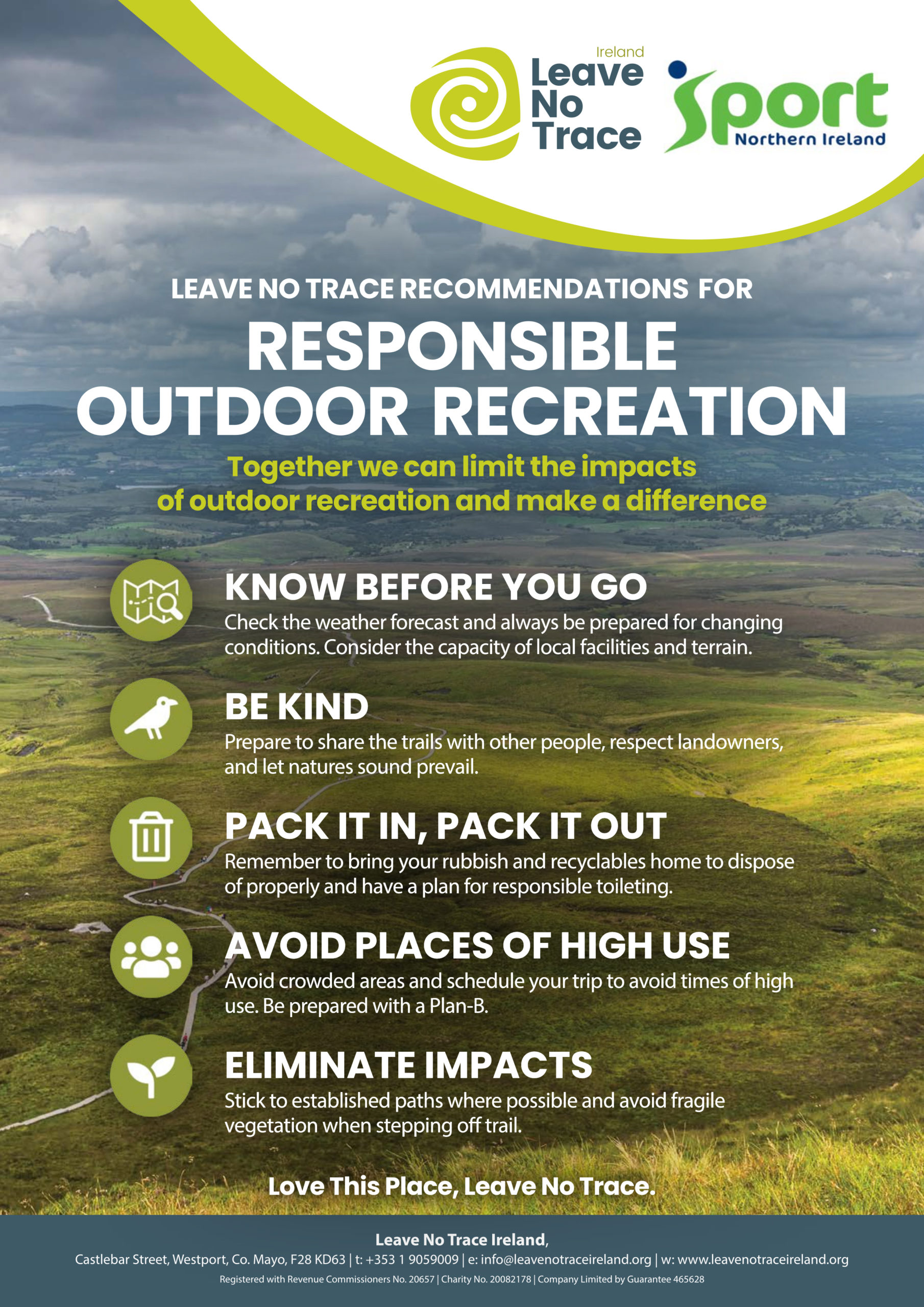The Countryside Code
What is the Countryside Code in Ireland?
While no national ‘Countryside Code’ has been adopted in Ireland (with Comhairle na Tuaithe opting instead for a Leave No Trace education approach in 2004) the following is broadly representative of the code as recognised by various local authorities, the Irish Farmers Association (IFA), numerous walking groups and other associated organisations.
- Respect farmland and the rural environment.
- Do not interfere with livestock, crops, machinery or other property.
- Guard against all risks of fire, especially near forests.
- Leave all farm gates as you find them
- Always keep children under close control and supervision.
- Avoid entering farmland containing livestock. Your presence can cause stress to livestock and even endanger your own safety.
- Do not enter farmland if you have dogs with you, even if on a leash, unless with the permission of the landowner.
- Always use gates, stiles, or other recognised access points and avoid damage to fences, hedges and walls.
- Take all your litter home.
- Take special care on country roads.
- Avoid making any unnecessary noise.
- Protect wildlife, plants and trees.
- Take heed of warning signs – they are there for your protection.
- If following a recognised walking route keep to the waymarked trail.
- Immediately report any damage caused by your actions to the farmer or landowner.
- Do not block farm entrances when parking
Do I have the right to roam freely in Ireland?
- Farmland is private property and access is only available with the goodwill and tolerance of farmers. While many farmers do not object to recreational users crossing their land, others do not wish to permit access. Their wishes must always be complied with. Please respect no trespass, no public access & private property signage.
- Always remember, farmland is a working environment and all persons who enter do so at their own risk. Under the 1995 Occupiers’ Liability Act, there is an obligation on entrants to take all necessary steps to ensure their own safety.
- Entrants are also responsible for any damage to private property, livestock and crops resulting from their actions. If crossing farmland, ensure your presence is unobtrusive and does not interfere with farming activities.
Leave No Trace
Leave No Trace is an Outdoor Ethics Education Programme designed to promote and inspire responsible outdoor recreation through education, research and partnerships. For more information visit the Leave No Trace Website.

